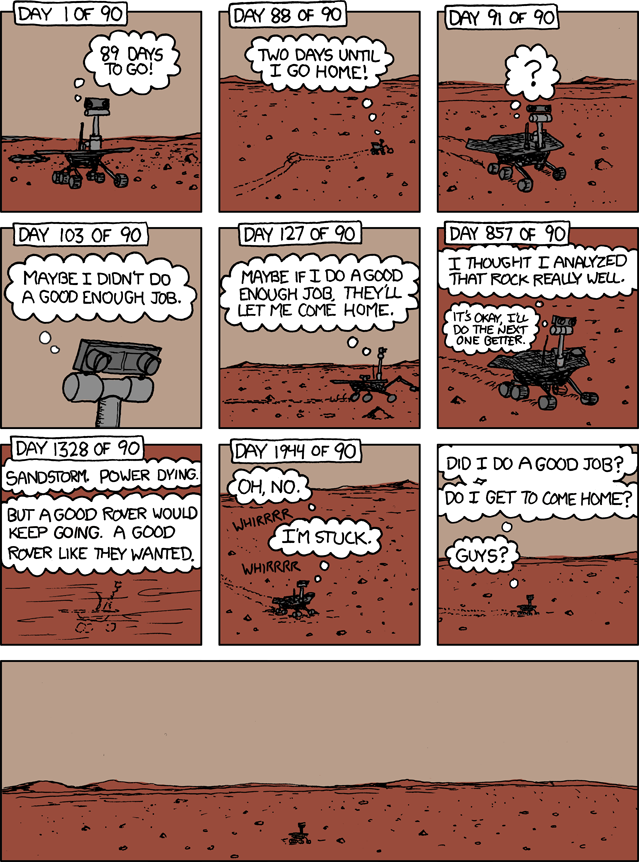Why not build new shuttles? NASA says the Endeavor cost 1.7 billion. That's 5 shuttles that could have been built, with new airframes and new equipment.
There's little need to send people to space right now. Most of our research can be done much more cost effectively with probes. I speculate that you're right about space being a very important part of our lives in the future but that doesn't mean we must personally be there as a species at all stages.
Because robots worth of billions are unable to get out of a little hole in the ground filled with dirt, or to swipe dust from their solar panels, for starters. Seriously, if humanity plans to survive in the long term, it must expand to space.
I am trying to imagine people with Obama-like mentality ruling over 15th century Portugal or Castille-Aragon.
"I am sorry, Vasco, but your planned voyage to India is simply too expensive, you're over the budget. We have wars to pay for and the peasants are getting restless, we must throw them some coin. But don't worry, our explorations programme isn't over, we'll hand it over to private investors. In the meantime, we want our navy to focus on more closer-to-home activities, like fishing and patrolling"
There's little need to send people to space right now. Most of our research can be done much more cost effectively with probes. I speculate that you're right about space being a very important part of our lives in the future but that doesn't mean we must personally be there as a species at all stages.



